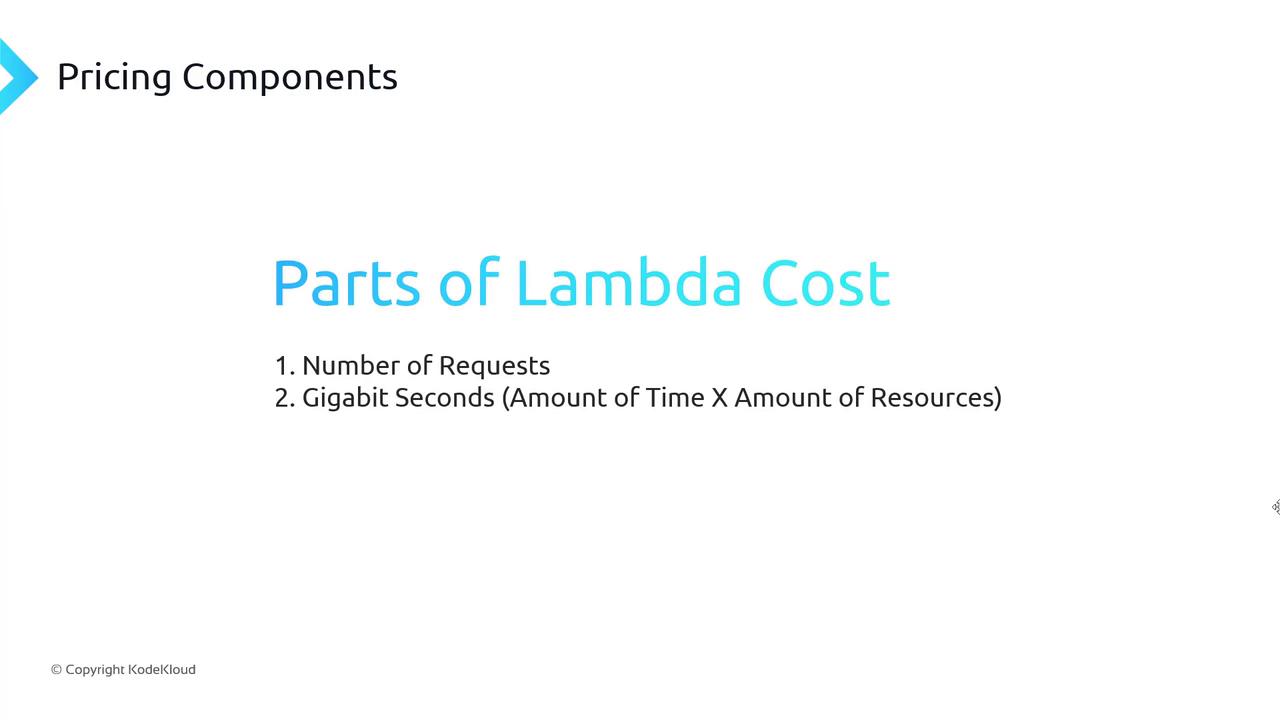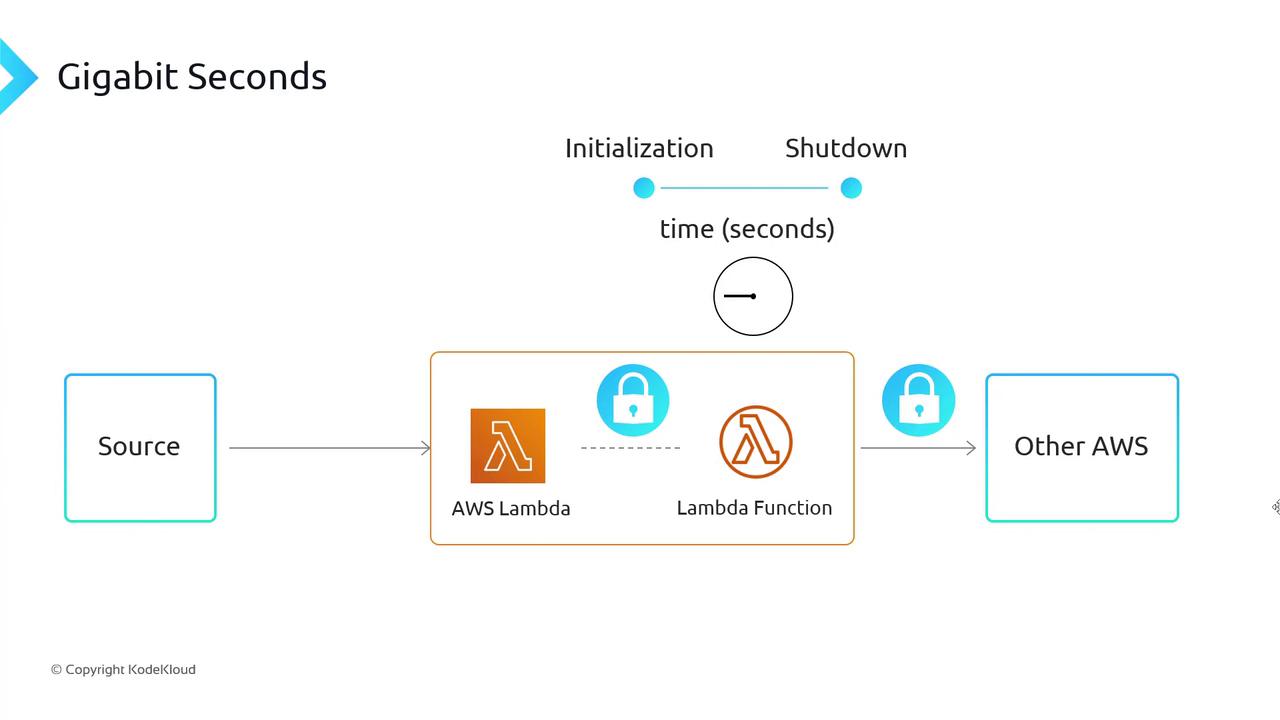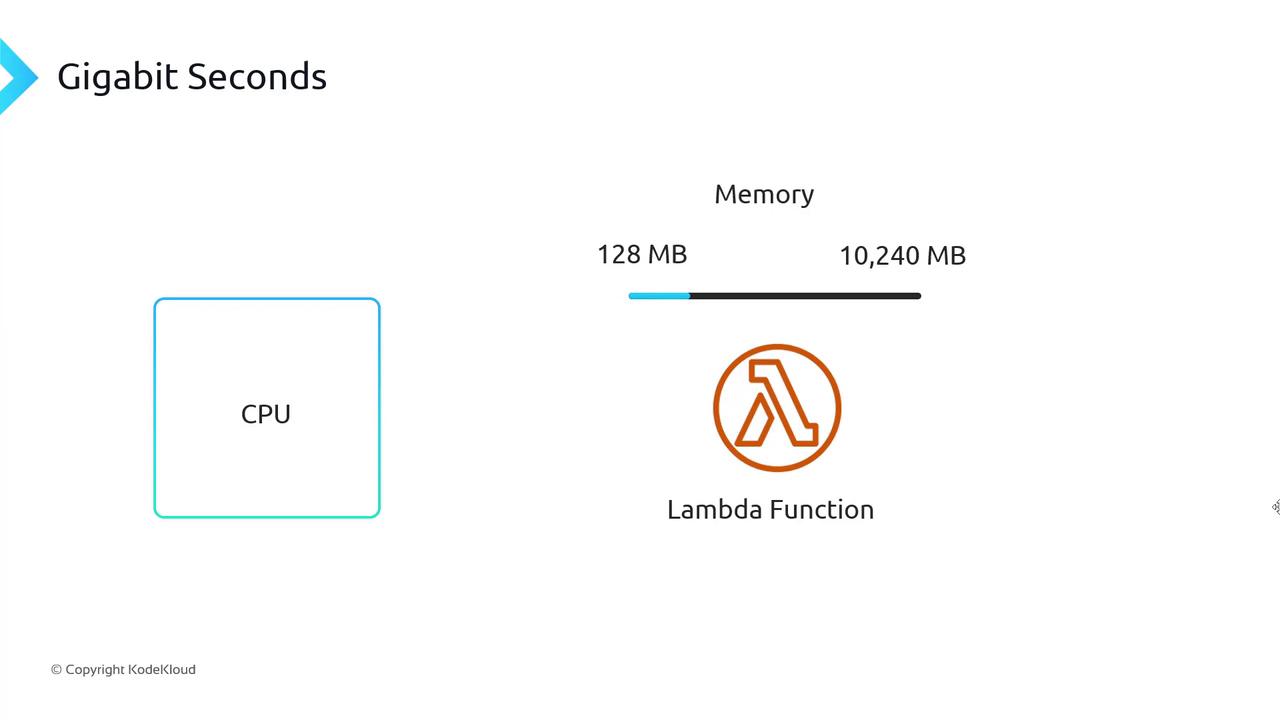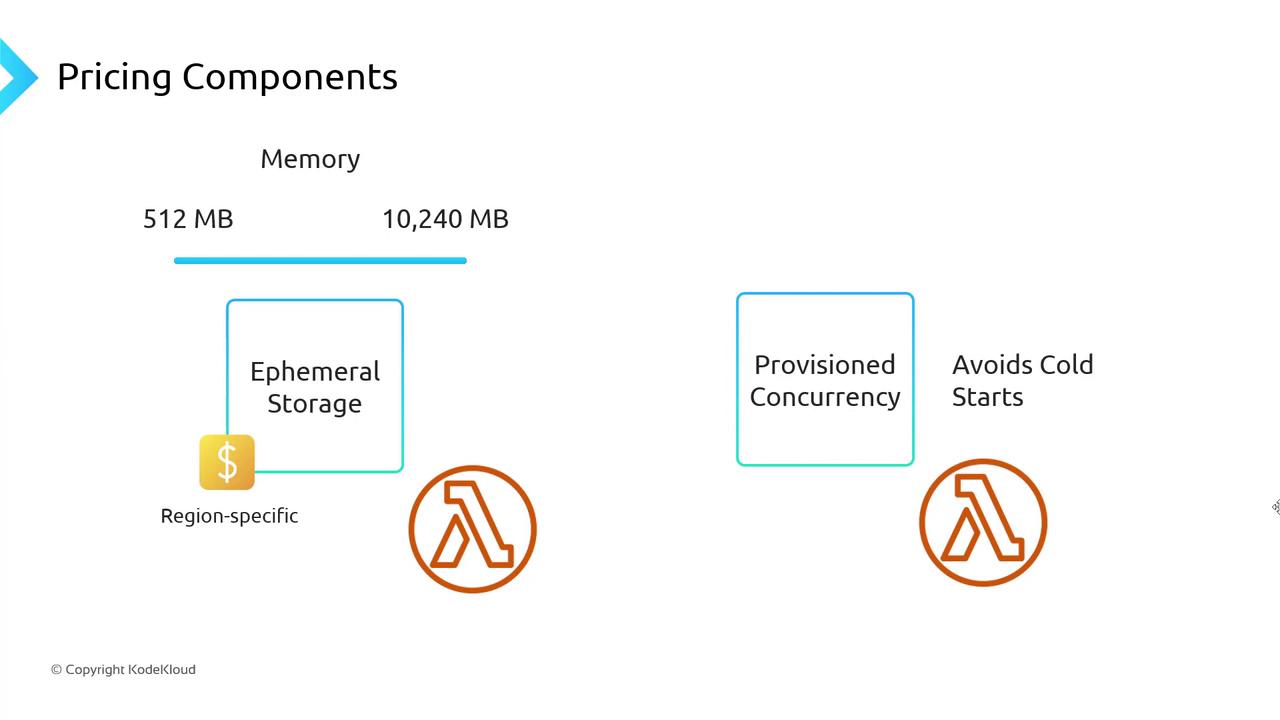Free Tier
AWS Lambda incurs no upfront fees. Each month, you receive:- 1 million free requests
- 400 000 GB-seconds of compute time
Free-tier usage resets every month. Usage beyond these amounts is billed according to the rates in your AWS Region.
Core Pricing Components
Lambda charges are based on:- Number of requests
- Compute time measured in gigabyte-seconds (GB-s)

1. Requests
Each time your function handler begins execution—triggered by API Gateway, event sources, or manual tests—it counts as one request.Price = (Total requests) × (Request rate per million)
2. Gigabyte-Seconds
Compute time is billed in GB-s, calculated as:- Timer starts when the handler is invoked and stops after shutdown code completes.
- Rounding is to the nearest millisecond.
AWS rounds up to the nearest ms, so a 1.0001 ms function is billed as 2 ms.

Memory and CPU Allocation
When you configure a Lambda function, you select memory between 128 MB and 10 240 MB. CPU power scales linearly with memory—more RAM also means more CPU share, speeding up execution and reducing GB-s.
CPU Architectures
Lambda supports two processor types. Choosing the right architecture can yield significant savings:| Architecture | Price-Performance Improvement | Best for |
|---|---|---|
| x86_64 | Baseline | General workloads |
| ARM64 (Graviton2) | Up to 34% better | Cost-sensitive, high-throughput jobs |
Additional Cost Factors
Besides requests and GB-s, consider these extras:| Component | Description | Billing Unit |
|---|---|---|
| Ephemeral storage | Scratch space (/tmp) from 512 MB to 10 GB | Per GB-month (region-based) |
| Provisioned concurrency | Keeps functions warm to avoid cold starts | Per concurrency-second |
Provisioned concurrency charges apply even during idle periods. Use only for latency-sensitive functions.

Summary
Your AWS Lambda costs depend on:- Free-tier utilization
- Request count
- GB-seconds (memory × duration)
- Memory/CPU allocation
- CPU architecture (x86_64 vs ARM64)
- Additional storage and concurrency settings